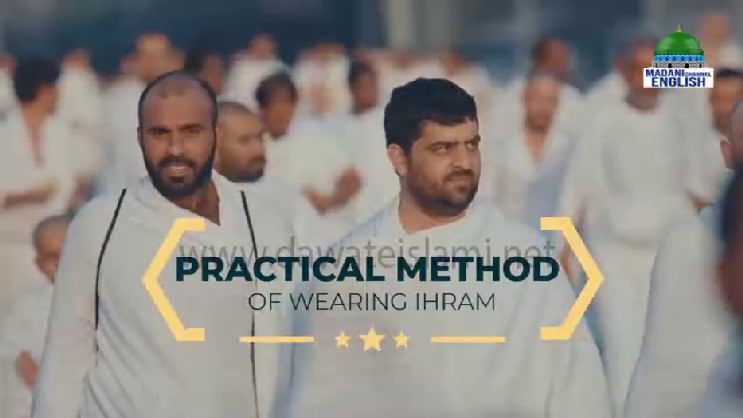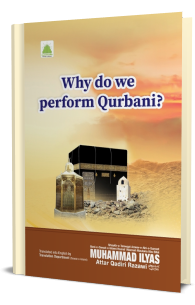
A Heartfelt Plea
Practical Matters
Muhammad Imran Attari - Chairperson of Dawat-e-Islami’s Central Executive Committee
Qurbānī (uḍḥiyya) is an important obligation. Muslims spend their wealth to fulfil said obligation as per their financial circumstances, seeking to follow the Sunna of Prophet Ibrāhīm عَـلَيْـهِ الـسَّـلاَم. Rather than to appease people, one should perform this act with the intention of pleasing Allah, keeping sincerity and piety in mind. Imran Attari, the Chairperson of Dawat-e-Islami’s Central Executive Committee, discussed this topic in one of his speeches. The following is a summary of the points presented therein.
1. A hadith explains:
A person does no action from the actions of Yawm al-Naḥr more beloved to Allah, than spilling blood. On the Day of Judgement, it (the sacrificial animal) will appear with its horns, hair, and hooves. Indeed, the blood shall be accepted by Allah before it even falls upon the Earth, so perform this wholeheartedly.”[1]
Shaykh ꜤAbd al-Haqq al-Dīhlawī رَحْمَةُ الـلّٰـهِ عَـلَيْه states, “Qurbānī will be placed in the pan of righteous deeds for the one who performs it, causing said pain to become weighty.”[2]
Mullā ꜤAlī al-Qārī رَحْمَةُ الـلّٰـهِ عَـلَيْه mentions, “It will then become a conveyance for him by which he will cross the Ṣirāṭ with ease. Each of its limbs will become a ransom (from the Hellfire) for every limb of its owner.”[3]
2. Qurbānī should be performed with a happy heart and for the sake of Allah. This is evidenced by the supplication of qurbānī, which is two verses of the Quran:
اِنِّیْ وَجَّہْتُ وَجْہِیَ لِلَّذِیْ فَطَرَ السَّمٰوٰتِ وَ الْاَرْضَ حَنِیْفًا وَّ مَاۤ اَنَا مِنَ الْمُشْرِکِیْنَ (ۚ۷۹)
I have turned my face, refraining from all falsehood, to the One Who created the heavens and the earth, and I am not of the polytheists.”[4]
اِنَّ صَلَاتِیْ وَ نُسُکِیْ وَ مَحْیَایَ وَ مَمَاتِیْ لِلہِ رَبِّ الْعٰلَمِیْنَ (۱۶۲)ۙ لَا شَرِیْکَ لَہٗ ۚ وَ بِذٰلِکَ اُمِرْتُ وَ اَنَا اَوَّلُ الْمُسْلِمِیْنَ (۱۶۳)
“Indeed, my prayer, and my sacrifices, and my living, and my dying are all for Allah alone; Lord of all the worlds. He has no partner; and thus I have been commanded, and I am the very first Muslim.”[5]
These verses mention the same point (performing worship for the sake of Allah). If we perform qurbānī bearing in mind this concept, our enjoyment will be doubled.
3. It is very important to have sincerity when purchasing an expensive animal for qurbānī, as this is an act of worshipping Allah. Whenever ostentation enters an act of worship, it ruins the latter.
4. Qurbānī is an act of worship and Satan wants to nullify this through ostentation. He tries to turn the action done by a person with good intentions into a cause of sin.
5. Perform qurbānī from pure wealth and keep sincerity foremost.
6. You might purchase the most expensive and most beautiful animal from the marketplace, but reflect on your intention and ask yourself: “Did I buy this expensive animal to please Allah or gather acclaim from people?”
7. If someone always purchases an expensive animal every year, but due to inflation, cannot afford it this year, he should still buy any inexpensive animal to fulfil the wājib of qurbānī. If a person now starts thinking, “What will people say?” he should reflect over his intention.
8. If somebody purchases an expensive animal and people rush to see it, we should not doubt his intention and think he purchased this to show off. (If we pass such judgements on his intention, it will fall in the sphere of harbouring bad opinions, which is a major sin.)
9. We should praise somebody upon seeing his beautiful animal by saying, “مَا شَـآءَ اللّٰه What a splendid animal you have bought. May Allah accept your sacrifice.”
10. It is bad for somebody to pass the judgement of ostentation upon another who spent more in the path of Allah by purchasing an animal beyond his means. Perhaps, due to the blessings of his spending beyond his capability in the way of Allah, a palace is built for him in Paradise, and it becomes a means of his rank being raised.
11. The ages of sacrificial animals are 5 years for a camel, 2 years for a cow, and 1 year for a goat (including: nanny goats, rams, and ewes). It is not permissible to sacrifice an animal younger than these. Older animals are permissible; in fact, they are superior. The six-month old calf of a sheep that appears as one-years old at a distance is also permissible for sacrifice.[6]
The sacrifice of a six-month old sheep is not unrestrictedly permissible. It must be of such stature and stoutness that it appears one-year old at a distance. If a six-month old sheep or even one which is only one day shy of a whole year does not appear as one years of age, its sacrifice will not be valid.
12. When purchasing a sacrificial animal, take a person with you who is experienced in determining the ages of animals and possesses expertise in identifying their defects, etc. It has been witnessed many times that the Amir of Ahl al-Sunna takes a lot of information from meat sellers in relation to animals.
13. There are varying rules regarding the consumption of various animal body parts, ranging from lawfulness, minor dislike (makrūh tanzīhī), prohibitive dislike (makrūh taḥrīmī) and unlawfulness. Yet, we lack knowledge of which part falls under which ruling.
14. If a person places his hand on the slaughter knife alongside the butcher to share in the slaughtering of the animal, calling takbīr will be wājib on both. If even one of them leaves it out deliberately or thinks the takbīr of the other suffices and there is no need for him to say the same; the animal will not be lawful in both cases.
15. Some drag the sacrificial animal to make it face qibla after bringing it to the ground. This causes much pain to it. We have been given many rulings relating to the sacrificial animal; we should bear them in mind.
16. After sacrificing the animal, supplicate to Allah and say, “The way in which I have sacrificed this animal upon Your command today; if the time comes, allow me to sacrifice my life for the sake of Your religion.”
17. Read the Amir of Ahl al-Sunna’s book, Piebald Horse Rider. This will prove advantageous in learning about virtues and rulings pertaining to qurbānī.

















Comments